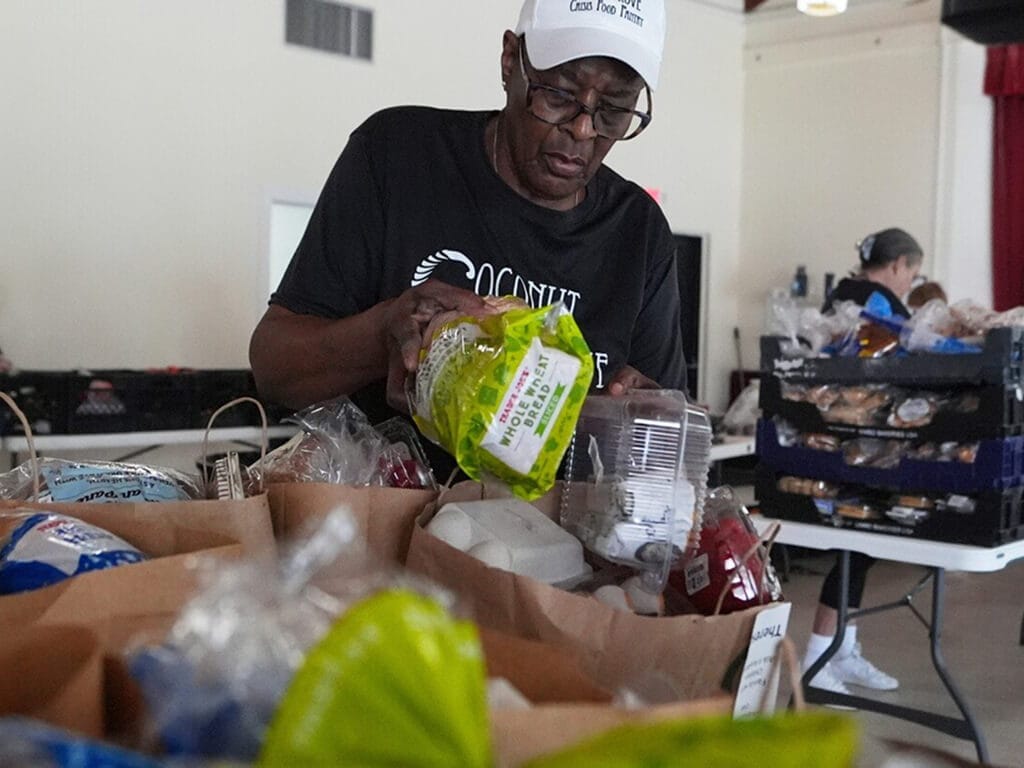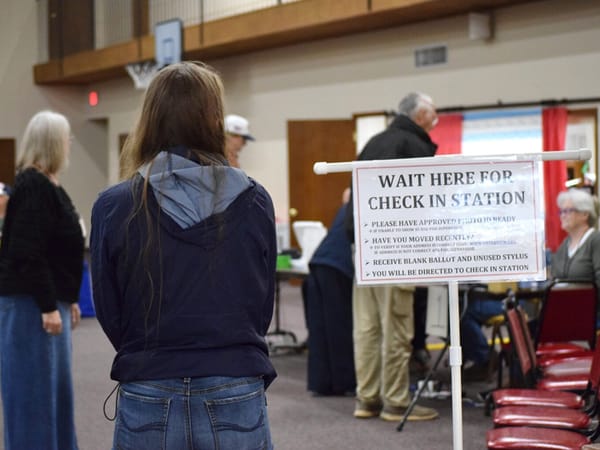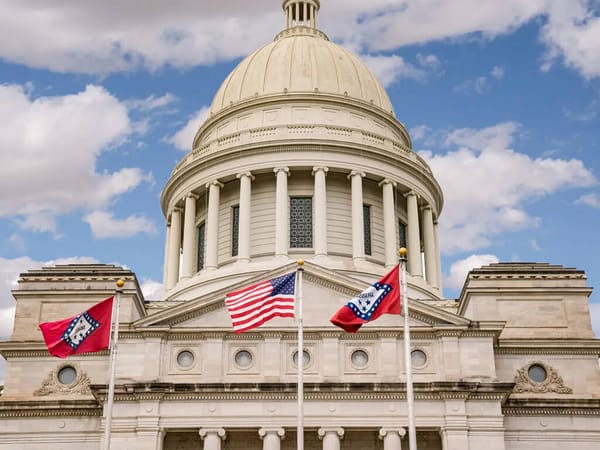As Washington Stalls, SNAP Support Feels Precarious in Arkansas
With the federal shutdown ongoing, Arkansas faces rising uncertainty over continued SNAP funding and food security.

An average of $187 a month on a SNAP prepaid card may not seem like much, but for many low-income families across the country, it is vital. These benefits often serve as their main source of money for food.
Now, that essential support is at risk. The ongoing U.S. government shutdown is putting millions of Americans in danger of missing their November food stamp benefits.
The U.S. Department of Agriculture (USDA), which administers the Supplemental Nutrition Assistance Program (SNAP), announced in a memo on Sunday, October 26, that no benefits will be issued on November 1. The decision has left about 42 million Americans in uncertainty. Widespread confusion has followed among SNAP recipients, many of whom are unsure whether they can continue using the remaining funds on their cards once program funding stops or if they will receive their missed November benefits retroactively after the government reopens.
EBT Cards Will Work, But May Not Last Long
Electronic Benefit Transfer (EBT) cards are not expected to stop working even if SNAP benefits are frozen in November. These cards, which recipients use to access and spend SNAP funds, will remain active for anyone who still has leftover balances from previous months.
However, experts point out that most recipients use their benefits soon after receiving them, leaving little to fall back on. The USDA has notified states that it will not distribute November SNAP payments or use emergency funds to cover the shortfall. As a result, several states have urged participants to manage their remaining balances carefully while the funding deadlock in Washington continues.
The USDA has yet to confirm if missed benefits will be issued retroactively after the shutdown. Still, social service experts expect that November payments will be released once federal operations restart.
States Step In As Federal Action Stalls
SNAP is federally funded and administered by the USDA, while individual states are solely responsible for distributing benefits to residents. Though, several states have pledged to step in to ensure their residents can still afford food in November.
Louisiana Gov. Jeff Landry signed an emergency declaration on October 24 to provide funding for his state’s residents. Vermont lawmakers followed on October 29, approving a plan to cover food stamp payments through November 15. In California, Gov. Gavin Newsom announced he would deploy National Guard troops and fast-track $80 million to keep supplies moving to community food programs as the state expands support for food banks.
More than a dozen states are taking similar measures, even as the USDA warned that they lack the authority to issue SNAP benefits independently and will not be reimbursed. “There is no provision or allowance under current law for states to cover the cost of benefits and be reimbursed,” the agency stated in its memo.
On Tuesday, a coalition of officials from 25 states and the District of Columbia filed a lawsuit against the Trump administration, arguing that suspending benefits is unlawful and would mark the first delay in SNAP’s history.
Arkansas Faces Vulnerability
While other states have taken legal or emergency steps to provide temporary relief, Arkansas has so far stayed out of those efforts. Yet the state may be among the hardest hit if the federal shutdown continues.
Arkansas ranks as the most food-insecure state in the nation, according to a 2024 USDA report. More than 222,000 individuals, roughly 8 percent of the state’s population, and over 118,000 households received SNAP benefits as of September 1, according to a Department of Human Services (DHS) press release.
The Arkansas Advocates for Children and Families reports that about 15.7 percent of Arkansans live in poverty, and nearly one in five households experiences food insecurity each year. This level of vulnerability leaves the state especially exposed to disruptions in federal food assistance programs.
On Wednesday, the Arkansas Department of Human Services (DHS) warned residents to prepare for potential interruptions to SNAP payments due to the ongoing federal government shutdown.
“DHS is awaiting additional guidance from the U.S. Department of Agriculture, the federal agency that administers SNAP benefits, and will provide updates as they are available,” the release stated. “At this time, it appears that the shutdown may prevent November benefits from being issued on time.”
The department also encouraged recipients to find nearby food pantries, churches, and community organizations offering temporary food support, and to stock up on shelf-stable items that can last through November and beyond.
“The SNAP retail system may disallow purchases beginning on Nov. 1 even if you have funds in your account,” the release warned.
Local food banks say the timing could not be worse. Many are already operating at or beyond capacity. If November benefits are delayed, they expect a sharp surge in demand.
“The charitable sector cannot fill that gap. We are pleading that all of our leaders and decision makers come to some resolution... but we can’t possibly meet all of the needs,” said Brian Burton, CEO of Arkansas Foodbank. He urged Arkansans to “do everything we can to support one another so that no family goes hungry,” encouraging residents to donate or volunteer at local food banks if possible.
DHS also noted that while the shutdown could delay SNAP applications or renewals, recipients should continue completing their required paperwork.
State Leaders Urge Action as Shutdown Drags On
State Sen. Jamie Scott has urged Gov. Sarah Huckabee Sanders to issue a disaster proclamation to help residents affected by the SNAP funding crisis. Scott warned that the shutdown could quickly disrupt thousands of Arkansas households already struggling to afford food, utilities, and housing.
In an open letter to the governor, she wrote that Arkansans should not go hungry “at the expense of a lingering partisan disagreement.” The proclamation, she said, would allow the state to coordinate with DHS, the Division of Emergency Management, and local partners to launch temporary food assistance programs and direct emergency funds to protect children, seniors, and working families.
“Now is the time for swift, compassionate leadership to ensure every family has access to food. Let’s stand together for our neighbors, children, and communities,” Sen. Scott said.
Scott is not alone. Several lawmakers and community leaders are urging the state to intervene. While the ultimate solution depends on ending the political gridlock in Washington and reopening the Treasury, partisan blame has dominated the debate.
Gov. Sanders acknowledged the food insecurity that many Arkansans could face if SNAP benefits lapse but placed responsibility on Democrats and Senate Majority Leader Chuck Schumer, urging them to “put Americans first.”
The current shutdown is nearing the 34-day record set during President Donald Trump’s first term. As the standoff continues, the strain is deepening. More employees remain unpaid, small businesses face mounting pressure, and programs like SNAP stay in limbo. With each passing day, the hardship grows, leaving families to bear the weight of a crisis they did not cause.





